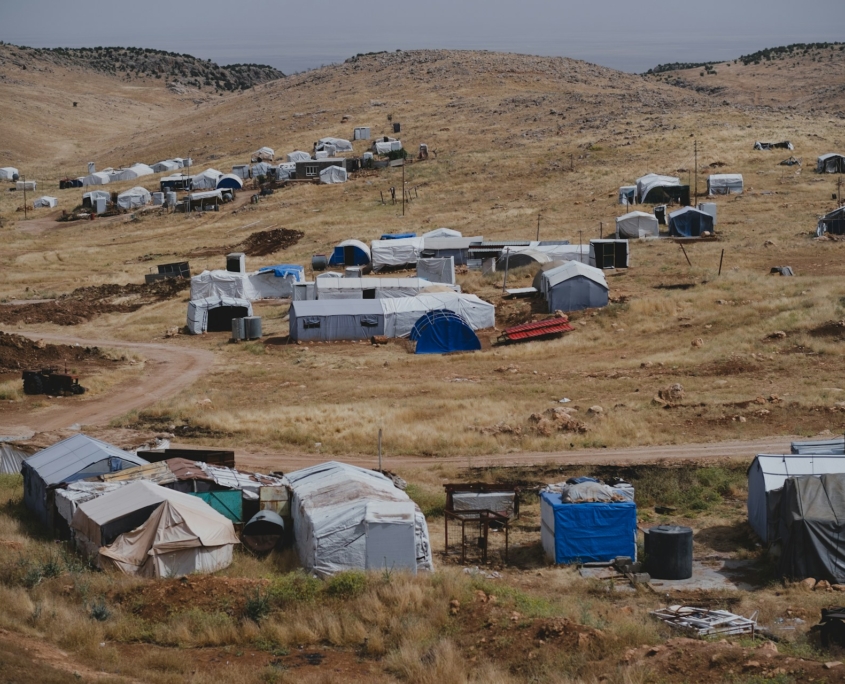3 Nonprofits Providing Relief to South Sudanese Refugees
 In the aftermath of Sudan’s brutal civil war of 1983-2005, which tallied approximately 2 million deaths, two separate states emerged in 2011. The southern territory became the Republic of South Sudan, primarily home to Christian and indigenous animist religious groups. However, violence persisted as unresolved conflicts between Sudan and South Sudan, including border disputes and religious differences. Consequently, brutality against South Sudanese refugees, including degrees of sexual violence, is labeled appalling by the United States (U.S.) Department of State.
In the aftermath of Sudan’s brutal civil war of 1983-2005, which tallied approximately 2 million deaths, two separate states emerged in 2011. The southern territory became the Republic of South Sudan, primarily home to Christian and indigenous animist religious groups. However, violence persisted as unresolved conflicts between Sudan and South Sudan, including border disputes and religious differences. Consequently, brutality against South Sudanese refugees, including degrees of sexual violence, is labeled appalling by the United States (U.S.) Department of State.
Seeking a life free from brutality, more than 4 million people, 65% of whom are children, have fled the country as refugees. The United Nations High Commissioner for Refugees (UNHCR) recognizes Ethiopia, Kenya and Uganda as the primary host countries for South Sudanese refugees. The rest of this article will examine the nonprofits operating in these countries to deliver aid.
South Sudanese Refugees and Amnesty International
Amnesty International tackled the refugee crisis by documenting hardships and urging the global community to honor its financial pledges. In 2017, it emphasized Uganda’s crucial role in hosting 1 million South Sudanese refugees, underscoring the urgent need for improved support and resources.
In addition, the organization actively engaged in the refugee crisis by dispatching researchers to assess the situation in four refugee camps, highlighting the severe funding shortfall’s impact on necessities like food, water and shelter. It found a desperate demand for food, water and shelter. By May 2017, Amnesty International observed that 82% of the pledged funds to the UNHCR remained unmet, exacerbating the food scarcity and worsening living conditions in the camps.
However, the organization, with the UNHCR, the World Food Program and 57 other aid agencies, pushed for substantial improvements in funding increases. Consequently, UNHCR’s funding receipt improved to 46% by 2023, compared to the previous 18%.
The Bill and Melinda Gates Foundation
Since 2006, the Bill and Melinda Gates Foundation has been active in refugee aid, focusing on emergency response and programs addressing global displacement. It emphasizes support for African refugee camps, partnering with UNHCR to launch the Saving Newborn Lives in Refugee Settings project in countries including South Sudan, Kenya and Ethiopia, benefiting South Sudanese refugees.
In addition, the project emphasizes family planning and newborn health, equipping health facilities with essential equipment, supplies and oversight, along with offering training and mentoring. These efforts significantly enhance the capacity of health workers at refugee sites to deliver neonatal care services.
The program has been designed to provide knowledge in infant resuscitation and how to prevent post-partum hemorrhage. Knowledge of newborn care essential to its survival has also been disseminated, to decrease infant mortality rates in the two years after birth.
Furthermore, the Gates Foundation collaborates on initiatives to enhance sanitation at refugee camps. Its Waste-to-Value projects introduce advanced technologies, including container-based toilets that convert waste to energy. The UNHCR highlights these efforts as crucial for improving sanitation at refugee sites.
The International Rescue Committee (IRC)
Since 1989, the IRC has been a major aid provider in southern Sudan, focusing on health care improvement, including training health workers and enhancing nutrition and sanitation services. It has put South Sudan on crisis watch, dedicating efforts to strengthen health care infrastructure and support services.
Moreover, the program’s training encompasses collaboration with health workers on essential and reproductive care, enhancing community leaders and urging government officials to support survivors of sexual violence.
The IRC provided aid to 1.1 million South Sudanese refugees in 2019 through its nutrition services and well restoration, combating disease spread. The IRC’s comprehensive training programs aim to rebuild displaced lives and foster peace. Highlighting the importance of donations, the IRC underscores that continuous financial support is crucial for refugee families to survive, recover and rebuild.
– Kayleigh O’Brien
Photo: Unsplash
